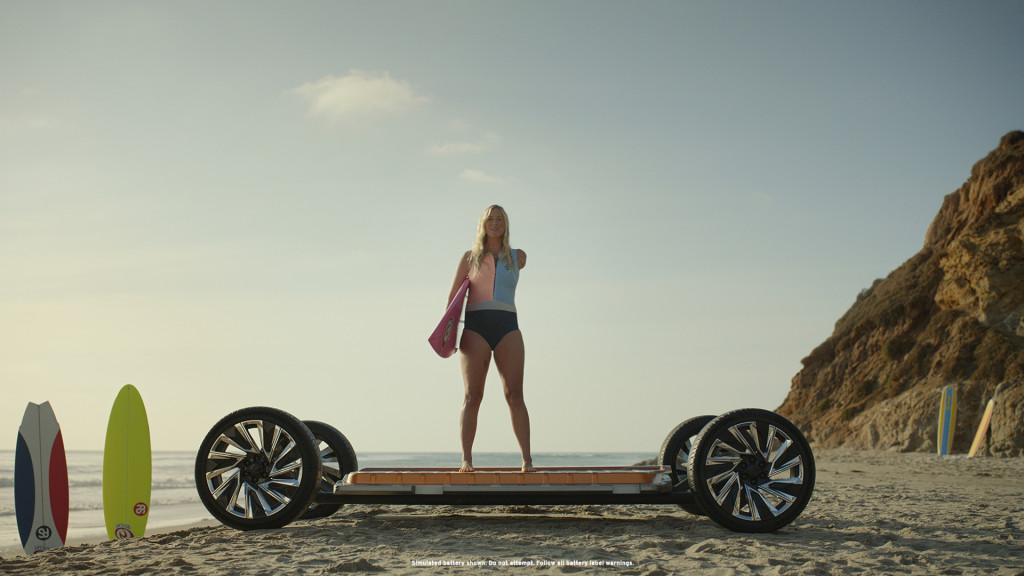Mazda and Lincoln joined other automakers this week by pledging to electrify their respective lineups and by announcing plans for their first battery electric vehicles. Full battery electric vehicles (BEV) will be joined by other electrified models, such as hybrids (HEV), mild hybrids, and plug-in hybrids (PHEV).
In February, Ford promised that electric vehicles would be fundamental to its Lincoln luxury brand following a $22 billion investment in electrification through 2025 across both brands. Then Ford debuted the 2022 Ford F-150 Lightning electric version of its bestseller, the 2022 E-Transit electric cargo van, and a fully electric version of the Explorer three-row crossover SUV.
Lincoln will launch its first battery electric model for 2022 to head the vanguard of Lincoln's electrified portfolio by 2030. Lincoln already sells plug-in hybrids variants under the Grand Touring trim on the Aviator and (soon) the Corsair.
The big news now for Lincoln is the announcement for four fully electric vehicle planned in the next few years. Ford developed two electric vehicle platforms, one for crossovers, SUVs, and small trucks, and a second for larger, body-on-frame trucks. Lincoln expects half of its global volume to come from battery electric vehicles by 2025, with hybrids, plug-in hybrids, and some remaining gas models rounding out the other end of the forecast.
Until now, Mazda appeared reluctant to commit to electrification, likely to the high development cost for a relatively small automaker. Now that it partnered with Toyota in the Mazda Toyota Manufacturing plant in Huntsville, Alabama, things could change. Earlier this year, it launched its first battery electric vehicle, the 2022 Mazda MX-30, but it will be limited to California.
Mazda plans a dedicated EV platform by 2025, while electrified models begin filling in big gaps in the Mazda lineup, which currently lacks even a hybrid model. Between 2022 and 2025, Mazda plans to launch five hybrids, five plug-in hybrids, and three BEVs globally. By 2030, Mazda expects its lineup to be fully electrified.
Other automakers have expressed similar ambitions.
In January, General Motors pledged a goal of "aspiring" to eliminate all tailpipe emissions from passenger vehicles by 2035. GM CEO Mary Barra also announced a plan for the company to achieve net-zero carbon status by 2040, including emissions from its factories.
The world's third largest automaker is not alone. Startup American carmakers such as California-based Tesla paved the way for traditional automakers like General Motors to grasp that electric vehicles can be profitable, sustainable, and embraced on a mass scale by car shoppers. Truckmaker Rivian, with a plant in Illinois, plans to produce and deliver the much anticipated R1T electric pickup truck and R1S SUV.
Electric carmaker Polestar—an offshoot of Volvo—started deliveries of the Polestar 2 electric fastback sedan this year, with more models to follow. Volvo pledged in 2019 to make half of its global sales electric by 2025.
Late in 2019, The Wall Street Journal estimated automakers will spend $225 billion developing electric vehicles in the immediate future.
Toyota, which just regained the title for world's largest automaker and has long been the leader in hybrid powertrains, pledged in August that by 2025, its global sales will feature 50% electrification, which includes hybrid, plug-in hybrid, full battery electric, and fuel-cell electric vehicles.
In May 2020, Volkswagen, the world's second largest automaker, invested $37 billion in its electric car program, with the intention of making 28 million electric vehicles by 2028. Tesla, the world leader in EVs, sold just below 500,000 models in 2020; that's the same number of ID.4 electric crossovers Volkswagen aims to sell annually by 2025. Production delays might push that target back.
BMW, Mercedes-Benz, Ford, and other automakers have committed to electrification and electric vehicles.
Automakers often signal ambitious plans based on the prevailing winds. In November, after the outcome of the U.S. election signaled Donald Trump's loss, GM did an about face on its support of the Trump administration's lawsuit against the state of California to keep it from setting its own fuel economy and emissions regulations. President Joe Biden has committed the U.S. to rejoining the 196 nations of the Paris Agreement on climate change to limit global warming by reducing greenhouse gas emissions, such as the carbon dioxide caused by internal combustion engines. Toyota had also been backing the Trump administration's action against California. Biden also committed to turning the government's vehicle fleet electric.
There are many other considerations for the budding EV market, including ramping up electric charging infrastructure in both rural and urban areas and satisfying American tastes for large vehicles with electric choices. But the collective commitments pledged by automakers, and furthered on Thursday by GM, prove this is much more than a trend.

Email This Page